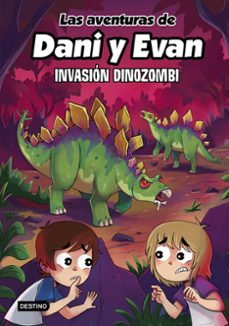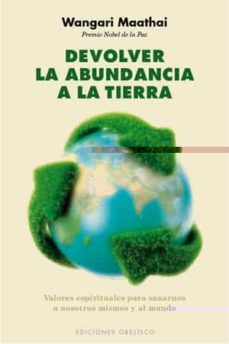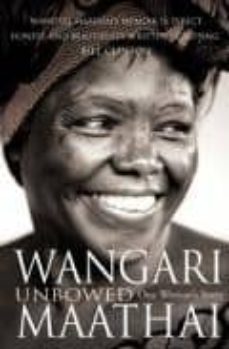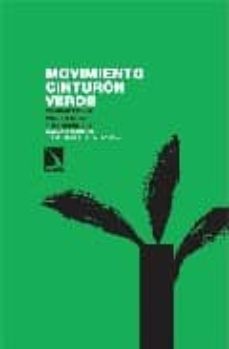Imprescindibles
Ficción
No Ficción
Ciencias y tecnología Biología Ciencias Ciencias naturales Divulgación científica Informática Ingeniería Matemáticas Medicina Salud y dietas Filología Biblioteconomía Estudios filológicos Estudios lingüísticos Estudios literarios Historia y crítica de la Literatura
Humanidades Autoayuda y espiritualidad Ciencias humanas Derecho Economía y Empresa Psicología y Pedagogía Filosofía Sociología Historia Arqueología Biografías Historia de España Historia Universal Historia por países
Infantil
Juvenil
#Jóvenes lectores Narrativa juvenil Clásicos adaptados Libros Wattpad Libros Booktok Libros de influencers Libros de Youtubers Libros Spicy Juveniles Libros LGTBIQ+ Temas sociales Libros ciencia ficción Libros de acción y aventura Cómic y manga juvenil Cómic juvenil Manga Shonen Manga Shojo Autores destacados Jennifer L. Armentrout Eloy Moreno Nerea Llanes Hannah Nicole Maehrer
Libros de fantasía Cozy Fantasy Dark academia Hadas y Fae Romantasy Royal Fantasy Urban Fantasy Vampiros y hombres lobo Otros Misterio y terror Cozy mistery Policiaca Spooky Terror Thriller y suspense Otros
Libros románticos y de amor Dark Romance Clean Romance Cowboy Romance Mafia y amor Romance dramatico Romcom libros Sport Romance Otros Clichés Enemies to Lovers Friends to Lovers Hermanastros Slow Burn Fake Dating Triángulo amoroso
Cómic y manga
Novela gráfica Novela gráfica americana Novela gráfica europea Novela gráfica de otros países Personajes, series y sagas Series y sagas Star Wars Superhéroes Cómics DC Cómics Marvel Cómics otros superhéroes Cómics Valiant
eBooks
Literatura Contemporánea Narrativa fantástica Novela de ciencia ficción Novela de terror Novela histórica Novela negra Novela romántica y erótica Juvenil Más de 13 años Más de 15 años Infantil eBooks infantiles
Humanidades Autoayuda y espiritualidad Ciencias humanas Economía y Empresa Psicología y Pedagogía Filosofía Historia Historia de España Historia Universal Arte Cine Música Historia del arte
Ciencia y tecnología Ciencias naturales Divulgación científica Medicina Salud y dietas Filología Estudios lingüísticos Estudios literarios Historia y crítica de la Literatura Estilo de vida Cocina Guías de viaje Ocio y deportes
Wangari Maathai
Recibe novedades de WANGARI MAATHAI directamente en tu email
Filtros
Del 1 al 4 de 4
LUMEN 9788426416124
Wangari Maathai, premio Nobel de la Paz en 2004 y actual responsable de medio ambiente y recursos naturales en su Kenia natal, constituye todo un ejemplo de entereza y tesón. En estas íntimas memorias, la activista habla de su humilde familia, sus estudios de biología en Estados Unidos, su insobornable lucha contra la deforestación que la llevó a la cárcel y, finalmente, el reconocimiento internacional que le ha merecido caminar con la cabeza alta y los pies bien plantados en la tierra de sus antepasados.
Ver más
Tapa dura
OBELISCO 9788497777834
"Una apasionada llamada a la acción para sanar las heridas de nuestro planeta y para sanarnos los seres humanos, a través de los principios de nuestras tradiciones espirituales, de una mujer laureada con el premio Nobel de la Paz. En nuestro mundo moderno es muy fácil sentirse desconectado de la Tierra física. A pesar de las advertencias directas y de la creciente preocupación por el estado de nuestro planeta, muchas personas no están al corriente de lo que ocurre en el mundo natural. Wangari Maathai trabajó durante muchos años con el Movimiento Cinturón Verde para ayudar a las mujeres de la Kenia rural a plantar y mantener millones de árboles. Metiéndose de lleno en la acción con la Tierra, estas mujeres suelen sentirse de pronto fortalecidas y comprometidas con esta situación, de un modo que nunca antes habían experimentado. Y Maathai quiso transmitir ese sentimiento a todo el mundo, puesto que consideraba que la clave se halla en los valores espirituales tradicionales: amor por el entorno, mejora personal, gratitud y respeto, así como compromiso con el servicio. Aunque fue educada en la tradición cristiana, Maathai se sintió inspirada por muchas tradiciones religiosas, y celebró el mandato judío de tikkum olam («repara el mundo»), al mismo tiempo que renovó el término japonés mottainai («no derroches»). Consideraba que, mediante una nueva consagración a estos valores, finalmente podremos sanarnos a nosotros mismos y al planeta."
Ver más
Tapa blanda
ARROW (RANDOM) 9780099493099
Born in the foothills of the Aberdare Mountains in Kenya in 1940, Wangari Maathai grew up in a close-knit Kikuyu community where food, fresh water and fuel were plentiful. Her family were farmers and she grew up surrounded by the beauties of an ecologically balanced forest in which trees offered shelter and fuel as well as maintaining the water table and fostering springs and streams and farming local crops such as millet and green vegetables as well as sheep and goats meant that people were well-fed. At that time, however, Kenya was undergoing a massive adjustment as colonialism brought with it European crops and farming methods, missionaries and white settlers. The enviromental balance that the old way of life had ensured was fatally disrupted as the forests were cleared to make way for settler farms and cash crops and a cash economy were introduced. Wangari was sent to a local mission school she continued her studies in the USA in Kansas and Pittsburg as part of the Kennedy airlift. She returned to Nairobi and received a PhD, the first woman in East and Central Africa to do so, and then became head of the veterinary medicine faculty there - the first woman to achieve that too. As her life unfolded Kenya suffered under the profoundly corrupt regime of Daniel arap Moi. Land was given away, natural resources plundered and the fragile ecological balance of many different habitats was destroyed as land that had been historically put to one use was put to another.. Extreme poverty and hunger for very many Kenyans followed, and Wangari, as she visited the areas of her country that she had known as a child, was struck by the absence of trees. She realised that if women planted trees the soil would stay, rain would sink into the earth and replenish the water table, biodiversity would be sustained, there would be material for fuel and fencing and therefore the people living on the land would be better off. Thus began one of the great influences for environmental and social change of our time, the Green Belt Movement. This is an amazing story spanning different worlds and changing times and revealing what the courage, determination, tenacity and humour of one good woman can achieve and how as small a thing as planting a seedling and watering it can made all the difference in the world.
Ver más
Tapa blanda
Los Libros de la Catarata 9788483193518
En 1977, estremecida por la devastación medioambiental provocada por la deforestación en su querida Kenya, Wangari Maathai (Premio Nobel de la Paz, 2004) fundó el Movimiento Cinturón Verde, que ha permitido a mucha gente, sobre todo mujeres, plantar árboles en sus regiones, proporcionándoles de esta forma comida y madera, y frenando también la erosión del suelo y la desertificación. No obstante, el Movimiento se convirtió en algo más que eso: se convirtió en un movimiento por la democracia representativa que, en el plazo de una generación, consiguió que se celebraran las primeras elecciones democráticas en Kenya, en las que Maathai fue elegida al Parlamento y nombrada ministra asistente de Medio Ambiente. Revela la lucha y la estructura de este extraordinario esfuerzo realizado para la reforestación de una vasta región y para liberar a su gente.
Ver más
Tapa blanda
Del 1 al 4 de 4


























